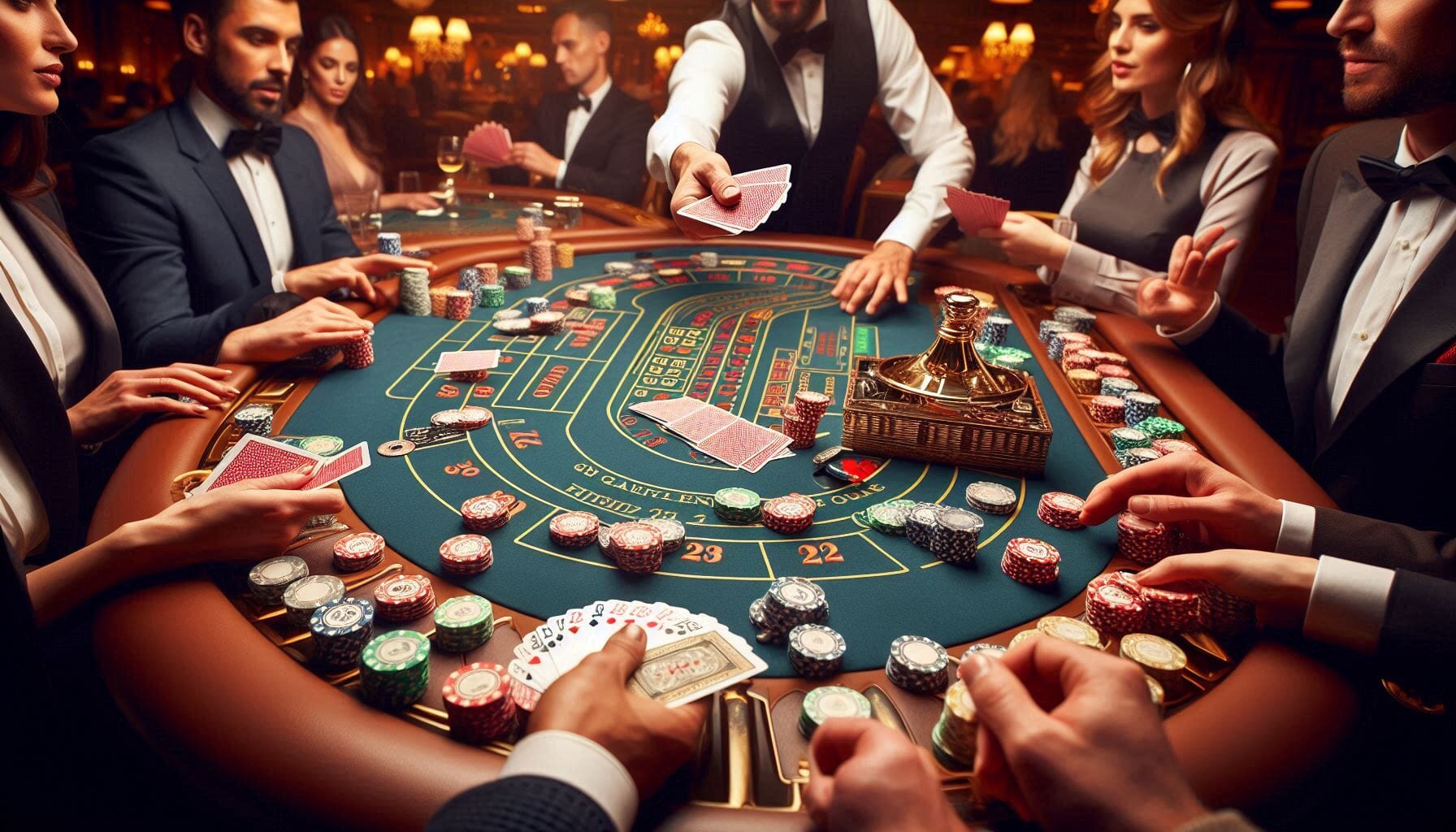
The Psychology Behind Casino Slot Machines and Player Behavior
I still remember my first visit to a casino like it was yesterday. The sound of coins clinking, the vibrant lights flashing, and the intoxicating smell of hope mixed with despair hung in the air. There I was, a wide-eyed novice, drawn to a row of dazzling casino slot machines that seemed to beckon me closer. As I sat down at the first machine, I felt a surge of excitement; little did I know that this moment would mark the beginning of my fascination with the psychology behind casino slot machines and player behavior.
From that day on, I became more than just a casual visitor; I was a student of human behavior wrapped in colorful LED lights and tantalizing jingles. Why do we play these games? What keeps us pulling those levers or tapping screens for hours? Let's delve into The Psychology Behind Casino Slot Machines and Player Behavior in English language to uncover the secrets that keep players returning for more.
The Allure of Slot Machines
Slot machines are designed to be visually captivating. With their bright colors, engaging themes, and immersive soundscapes, they create an environment where players can easily lose track of time. But what is it about these machines that hook us so profoundly?
One core aspect is what's known as "near-miss" scenarios. When players almost win—where two out of three symbols align—it creates a psychological effect akin to winning. This near-miss phenomenon triggers feelings of hope and optimism, making players believe they are "due" for a win. It's an emotional rollercoaster that can lead to extended play as gamblers chase after that elusive jackpot.
The Role of Slot Volatility
Not all slot machines are created equal, which brings us to slot volatility—a term used to describe how often and how much a machine pays out. High-volatility slots offer larger payouts but less frequently, while low-volatility slots provide smaller wins more often. This variance can significantly affect player behavior.
Free slotsPlayers often gravitate towards high-volatility games because they promise the thrill of big wins, even though they might not win frequently. The lure of striking it rich keeps them coming back for more despite lengthy dry spells between paydays. Conversely, low-volatility machines tend to attract players who appreciate consistency over excitement; they find comfort in knowing their chances of winning are higher.
Psychological Triggers: The Free Spin Feature
Another fascinating element is the free spin feature commonly found in many modern slot machines. While free slot games may seem like an excellent opportunity for players to enjoy without risking their cash, there’s much more happening beneath the surface.
When players receive free spins as part of a promotional offer or from hitting specific combinations on the reels, they feel an immediate sense of reward. This sensation can spark compulsive play; after all, who doesn’t want to capitalize on “free” opportunities? The truth is that these features cleverly utilize behavioral psychology principles—creating anticipation and excitement while reinforcing player loyalty.
Social Proof: Community Aspect of Gambling
Today's casinos have also slot paylines adapted by creating communal gambling experiences through linked jackpots and multiplayer interfaces on electronic slot machines. This social proof plays into our innate desire for belongingness; we want to share our experiences with others who understand our joys and frustrations alike.
Moreover, seeing other players win large sums reinforces the belief that luck could strike at any moment. It’s no wonder people often feel compelled to join in when they witness someone else having success—it’s contagious! As we immerse ourselves in this dynamic environment filled with cheers and celebrations over seemingly small victories, we become part of something bigger than mere individual play.

Emotional Regulation: Escapism through Play
For many individuals, playing casino slot machines serves as an escape from reality—a way to cope with stress or emotional turmoil. Engaging with these games allows players to temporarily forget their problems while immersing themselves in thrill-seeking behavior.
Interestingly enough, research suggests that people are more likely to gamble during challenging times or periods marked by anxiety or depression. The adrenaline rush experienced while spinning those reels provides instant gratification amidst chaos—a coping mechanism wrapped neatly within flashing lights and melodic chimes.
What Makes Players Keep Coming Back?
- Both winning and losing can trigger dopamine releases in our brain—the neurotransmitter responsible for pleasure! Thus, whether you hit it big or face disappointment at those stubbornly aligned symbols evokes feelings tied closely together—creating an addictive cycle where every spin feels like potential victory!
- Many modern slots incorporate intricate narratives into gameplay—players become invested not only in their wins but also in each character's journey! By establishing emotional connections through storytelling elements (think fairy tales or epic quests), developers enhance immersion levels significantly—making you yearn for just one more spin!
- Absolutely! Realizing which types suit your risk appetite helps tailor experiences toward either high-energy thrills or steady returns based on personal preference—while also managing bankroll expectations effectively!
- The introduction of innovative mechanics keeps gameplay fresh—ensuring continued interest among seasoned veterans who might otherwise tire quickly! Such updates stimulate curiosity around re-engagement opportunities ensuring everyone finds something appealing regardless if they're novices or experts alike!
As we explore The Psychology Behind Casino Slot Machines and Player Behavior in English language further through practical insights into design elements such as sound effects paired with visual stimuli coupled alongside emotional motivations driving participation—we unveil just how multifaceted this phenomenon truly is!
In conclusion (oops…no conclusions here!), understanding why people are drawn irresistibly toward casino slots reveals layers upon layers reflecting deeper aspects surrounding human psychology itself—from addiction tendencies shaped by environmental factors right down through individual perceptions influenced largely by social interactions within gambling contexts! So next time you find yourself enticed by those cheerful bells ringing away at your local gaming establishment—take a moment reflectively pause before diving back into action!